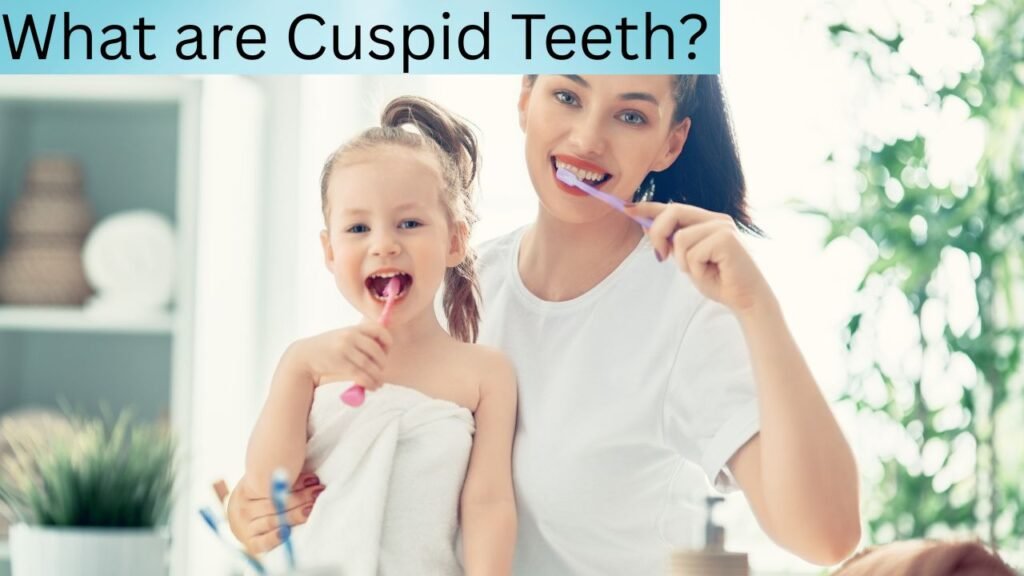Cuspid teeth, also known as canine teeth, play a crucial role in your overall dental health. You may have noticed these sharp, pointed teeth when smiling or chewing. But what exactly are they, and why are they so important?
Maybe you’re wondering, “Why should I care about these specific teeth?” Well, understanding your cuspid teeth can help you take better care of your oral health and even prevent potential dental issues.

What Are Cuspid Teeth? The Basics
Cuspid teeth, or canine teeth, are the four pointed teeth located between your incisors (the sharp, front teeth) and your premolars (the teeth behind your canines). You’ll find one cuspid tooth on the upper and lower jaw on both sides.
Main Function of Cuspid Teeth
These sharp teeth are designed for tearing and shredding food, making them vital for your chewing process. They are particularly useful when biting into tough foods like meat, which they help break down. Cuspid teeth also help guide the alignment of your bite.
Why Are Cuspid Teeth Important?
- Bite Alignment: Cuspid teeth play a key role in your bite’s alignment. They work in harmony with other teeth, helping the upper and lower jaws fit together properly when you chew or close your mouth.
- Aesthetic Value: Canine teeth are also important for your smile. Because they are some of the most visible teeth, they impact the overall appearance of your mouth.
- Functionality: While they may seem like just another tooth, cuspid teeth are incredibly strong and essential for biting into food effectively.
When Do Cuspid Teeth Erupt?
Cuspid teeth typically begin to erupt during childhood. Here’s a brief timeline:
| Tooth Type | Age of Eruption |
|---|---|
| Primary (Baby) Cuspids | Around 16 to 20 months |
| Permanent (Adult) Cuspids | Between 9 and 12 years |
The eruption of permanent cuspids generally happens between the ages of 9 and 12 years. The upper cuspid teeth tend to erupt slightly later than the lower ones.
What Happens if a Cuspid Tooth Is Impacted?
Sometimes, cuspid teeth don’t erupt properly. This is called impaction. An impacted cuspid tooth may fail to break through the gums, causing pain and discomfort. In some cases, it can even affect the alignment of surrounding teeth.
What to do about impacted cuspid teeth? If you think you might have an impacted cuspid tooth, it’s important to visit a dentist or orthodontist. They can help guide the tooth into place, often through treatments like braces or, in some cases, surgery.
Frequently Asked Questions About Cuspid Teeth
Q: What is the main function of canine teeth?
A: Cuspid teeth are mainly responsible for tearing and shredding food. Their sharp, pointed shape allows them to break down tougher foods like meat, making them essential for efficient chewing.
Q: When do permanent cuspid teeth typically erupt?
A: Permanent cuspid teeth usually erupt between 9 and 12 years of age. They replace the primary (baby) canine teeth, with upper cuspids erupting slightly later than lower cuspids.
Q: What happens if a cuspid tooth is impacted?
A: An impacted cuspid tooth doesn’t fully emerge through the gums, which can cause discomfort, pressure, and potential misalignment of adjacent teeth. Treatment often involves orthodontic care or surgery to help the tooth erupt properly.
How Do Cuspid Teeth Affect Your Overall Dental Health?
Cuspid teeth are more than just a part of your smile. These teeth are deeply connected to your overall dental health, playing a significant role in both the function and appearance of your teeth. If you notice pain, discomfort, or any issues with your cuspid teeth, it’s a good idea to consult with a dental professional to prevent complications.
Tips for Taking Care of Your Cuspid Teeth
Just like the rest of your teeth, your cuspid teeth require proper care. Here are some tips to keep them healthy:
- Brush regularly: Make sure to brush your teeth twice a day to prevent plaque buildup and cavities. Don’t forget to brush along the gumline where your cuspid teeth meet the gums.
- Floss daily: Flossing removes food particles and plaque from between your teeth, helping prevent gum disease and cavities.
- Visit your dentist: Regular checkups with your dentist will ensure that your cuspid teeth are in good condition and erupting properly.
Conclusion:
- Cuspid teeth, also known as canine teeth, are essential for biting and chewing tough foods.
- These pointed teeth play a critical role in bite alignment and the overall appearance of your smile.
- Permanent cuspid teeth typically erupt between the ages of 9 and 12.
- If your cuspid tooth is impacted, it’s important to seek treatment from a dental professional.
Understanding the role of your cuspid teeth is the first step toward maintaining healthy, strong teeth for years to come. If you’re experiencing any discomfort or issues with your cuspid teeth, be sure to consult a dentist or orthodontist for professional advice and treatment.
Find Your Perfect Dentist
Easily book appointments with top-rated dentists in your area
Need Emergency Dental Care?
Get immediate help from verified dental professionals